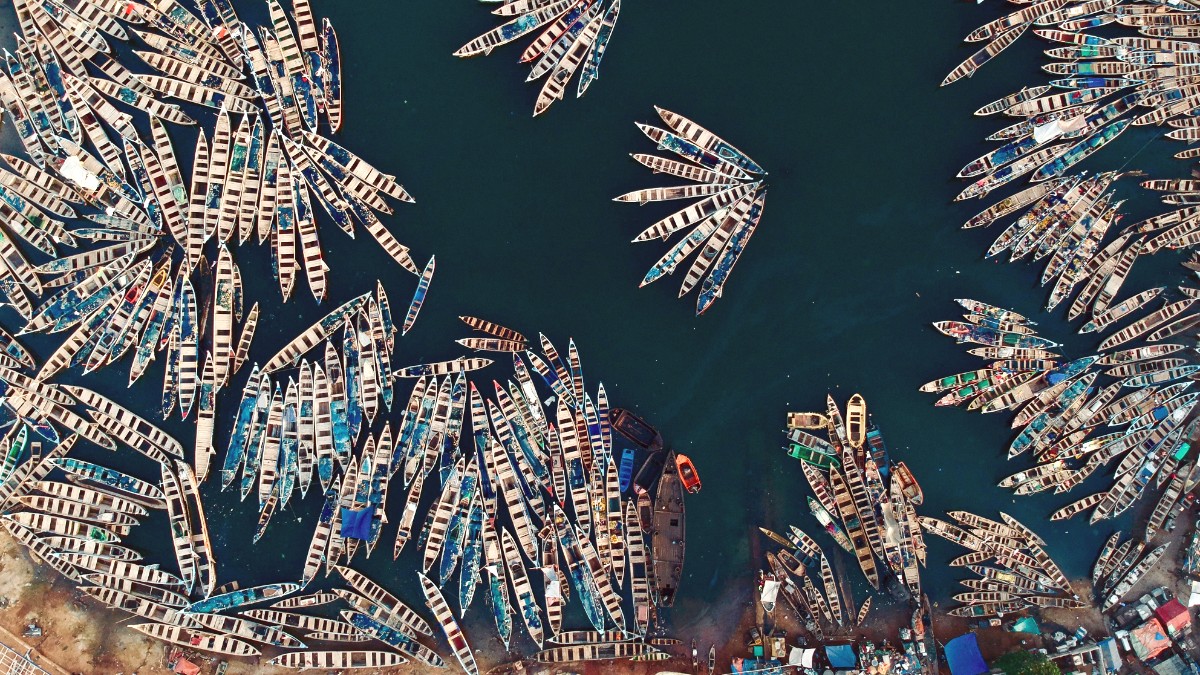
Ghana
The major rainy season occurs from April to July, with the heaviest downpours usually in May and June. These rains often manifest as heavy, short bursts, which may lead to localized flooding in some low-lying areas. A minor rainy season follows from September to October, bringing lighter and less consistent rainfall.
The dry seasons offer a welcome respite from the rains. The main dry season spans November to March, and a brief dry spell occurs in August.
For specific activities, the dry season (November to March) ranks as the best time for beach relaxation and most outdoor adventures. If your visit includes cultural festivals, confirm their specific dates, as many coincide with the dry season. For wildlife viewing, like a day trip to Kakum National Park, visibility improves during the dry season as animals gather around available water sources.
Pack lightweight, quick-drying clothing, regardless of the season. Even in the dry season, humidity remains a factor. A Compact umbrella or Rain jacket is a smart addition to your gear for any time of year.
April to July (Major Rainy Season)
Significantly fewer tourists, best rates for flights and hotels, lush green landscapes.
Frequent and heavy rainfall, high humidity, localized flooding may occur, outdoor activities may have limitations.
August & September-October
Fewer tourists, potentially lower prices for flights and accommodation, August often brings drier weather.
August remains very humid, September-October sees some rain, though less disruptive than peak rainy season.
November to March (Dry Season)
Minimal rain, abundant sunshine, ideal for beach activities and outdoor exploration, Harmattan brings cooler evenings.
Higher tourist numbers, increased prices, Harmattan dust may bring discomfort for respiratory sensitivities.
The Harmattan is a dry, dusty northeast trade wind blowing in from the Sahara Desert, occurring notably from November or December to February or March. It brings cooler nights and hazy days; humidity drops, and dust-related respiratory irritation may occur. Visibility often diminishes.
Travelers often find the Harmattan period more comfortable for outdoor activities due to the lower humidity and cooler evenings. Photography and scenic views may be affected by the reduced visibility. Individuals with respiratory sensitivities might experience discomfort.
Sahara Desert, blowing from northeast.
November/December to February/March.
Cooler nights, hazy days, reduced humidity.
Diminished visibility, potential dust irritation.
Often preferred for outdoor activities despite dust.
Ghana’s currency is the Ghanaian Cedi (GHS). Exchange rates fluctuate, so current rates bear checking before your travel. You can exchange major foreign currencies like USD, EUR, and GBP at reputable forex bureaus or banks. Avoid exchanging money with street vendors; scam risk exists. ATMs appear widely available in Accra, especially in commercial areas and at bank branches, and commonly accept Visa and Mastercard for withdrawals in GHS. Major hotels, upscale restaurants, and large supermarkets typically accept credit cards. Smaller establishments and local markets, however, generally require cash.
Approximate costs per night:
Approximate costs per person/ride:
Approximate daily costs (GHS & USD):
Several vaccinations are required or recommended before your visit. A valid Yellow Fever vaccination certificate is a mandatory entry item for Ghana. Recommended vaccinations include Hepatitis A, Hepatitis B, Typhoid, Tetanus-Diphtheria-Pertussis (Tdap), Measles-Mumps-Rubella (MMR), Polio, and Rabies (especially for high-risk activities or prolonged stays). Seek advice from a travel health clinic well in advance of your departure for personalized recommendations.
Malaria carries a high risk. Prescribed antimalarial medication should be taken as directed. Employ Insect repellent containing DEET or picaridin, wear Long-sleeved shirts and pants, especially at dawn and dusk, and sleep under a Mosquito net. Typhoid and Hepatitis A are diseases contracted through contaminated food or water; diligent practice of good food and water hygiene is important.
Traveler’s Diarrhea occurs commonly. Drink only bottled or purified water. Avoid ice, uncooked foods, and unpeeled fruits unless their safe preparation stands certain. Anti-diarrhea medication assists.
Healthcare services exist in Accra, with several private and public hospitals. Private options like Nyaho Medical Centre and Lister Hospital generally maintain better care standards but at a higher cost.
Pharmacies stand readily available for common medications.
Emergency services may respond slowly; often, quicker and more reliable access to a hospital involves a private taxi directly to the facility.
Accra generally holds safety for tourists, though petty crime like pickpocketing and bag snatching may occur, especially in crowded areas like markets, bus stations, and popular tourist sites. Exercise increased vigilance in market areas like Makola Market. Some areas, like Agbogbloshie and Nima, may present lower safety levels, specifically at night, due to higher crime rates.
Travel insurance carries high recommendation. Your policy should cover medical emergencies, emergency evacuation, trip cancellation, and lost baggage. Compare policies from reputable providers for a suitable fit.
World Nomads (adventurous travelers), SafetyWing (digital nomads), Insubuy (visitors to US).
Consider anti-theft bags and travel security products from Pacsafe.
AirHelp assists with compensation for delayed or canceled flights.
For emergencies, the general police, ambulance, and fire number stands at 112, though responses, however, may be unreliable. Dial 191 for police directly. Keep your embassy or consulate’s contact details handy. For U.S. Citizens, the U.S. Embassy in Accra stands ready at +233 30 274 1000.